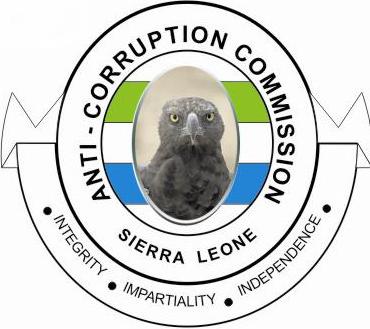By: Kadijatu Jalloh, Mass Communications Student, Central University Mile 91 (Intern)
In the ongoing effort to build a fair and just nation, the values of integrity, responsibility and ethical governance should take center stage. Corruption is a persistent threat that undermines these values and one that obstructs progress. This is why a comprehensive approach is often needed to curb the scourge. Although enforcement –through investigation and prosecution of persons suspected of committing acts of corruption- is often hailed as an effective strategy in curbing corruption, another powerful weapon in the fight against corruption is prevention.
The Anti-Corruption Commission (ACC), established in 2000, has made significant strides in combatting corruption through various means, including public education, investigations and prosecutions. Yet, the pervasive nature of corruption persists. This is why many countries in the world have prioritized the preventive approach in the fight against corruption.
Prevention mainly involves building institutional systems and processes or conducting reviews of those systems in a bid to make them resistant to corruption. Systems review is a targeted initiative by the ACC's Prevention Department. It aims to identify vulnerabilities within Ministries, Departments and Agencies (MDAs), allowing for a comprehensive analysis of their systems, policies, and procedures. By identifying and addressing potential corruption risks, systems review serves as a preemptive strike against the erosion of integrity within public offices.
The legal basis for systems review is firmly rooted in the Anti-Corruption Act of 2008, as amended in 2019. This legal framework empowers the Commission to scrutinize the practices of public bodies, facilitating the exposure of corrupt practices and the revision of procedures conducive to corruption. Pursuant to Section 7 subsection 2 (f) of the Act, the ACC is vested with the authority to drive change and promote transparency within public institutions.
Importantly, the Commission's role extends beyond identification and recommendation. The Commission possesses the mandate to enforce compliance through established penalties, as stipulated in Section 8 (1) & (2) of the Act. This authority ensures that public bodies implement the recommendations within a specified timeframe. Non-compliance prompts engagement with the ACC, fostering a collaborative effort towards corruption prevention.
Recognizing the dynamic nature of corruption prevention, the ACC actively collaborates with external partners to bolster systems review. A prime example is the transformative collaboration in 2020 with the Open Society Initiative for West Africa (OSIWA). This partnership yielded the Compliance Management and Sanctions Enforcement Procedure Handbook, a powerful successor to previous manuals. The handbook empowers MDAs to take ownership of recommended changes, amplifying transparency and accountability.
The significance of systems review cannot be overstated. Beyond being a cost-effective measure when compared to investigations and prosecutions, systems review initiates, a cultural shift toward integrity in public service delivery. By preemptively identifying corruption vulnerabilities, this approach eliminates opportunities for corruption, paving the way for a transparent and accountable governance structure. Public offices, once perceived as breeding grounds for corruption, evolve into bastions of integrity.
Under the umbrella of the National Anti-Corruption Strategy (NACS) 2019-2023, the ACC adopts a multifaceted approach to enhance ethical governance. Strengthening the independence and integrity of regulatory bodies stands out as a pivotal aspect. Regular evaluations of regulatory agencies' performance are reported to Parliament, ensuring fairness and transparency within sectors.
Streamlined financial disclosure and accounting norms expose bribes and kickbacks, making concealment challenging. Additionally, ensuring prompt budgetary allocations to MDAs and improving the conditions of public servants contribute to the prevention of corruption in public offices.
Another enduring preventive measure employed by the ACC is assets declaration. Public officers are mandated to declare their income, assets and liabilities, promoting integrity and transparency in public office and deterring corrupt practices. This practice creates a culture of accountability, effectively monitoring wealth accumulation and acting as a strong deterrent against corruption.
As Sierra Leone strives for a brighter future, the ACC's proactive efforts in preventing corruption through systems and processes review stand as a beacon of hope.
This approach is firmly anchored in legal foundations, collaboration, and innovation; it underscores the Commission's commitment to fortifying integrity within public offices. By embracing systems review, citizens and institutions alike contribute to the construction of a nation where corruption is challenged at its roots, and a culture of transparency and accountability flourishes. Our collective civic responsibility finds resonance in these efforts, as we unite against corruption and herald a new era of progress and ethical governance.




